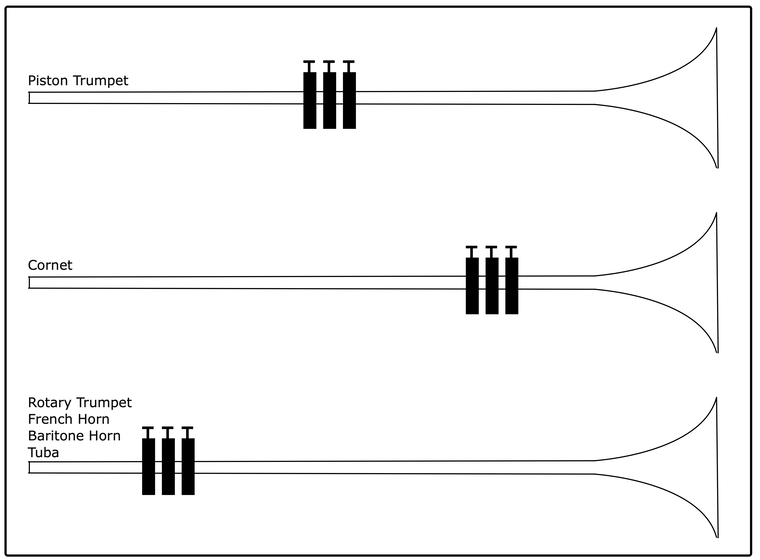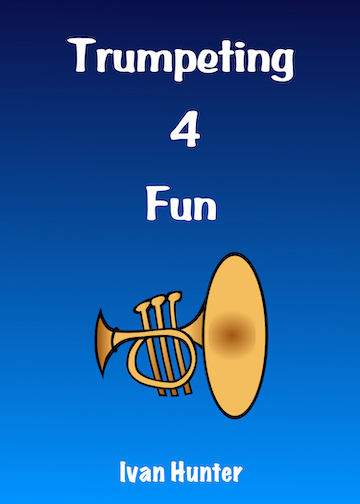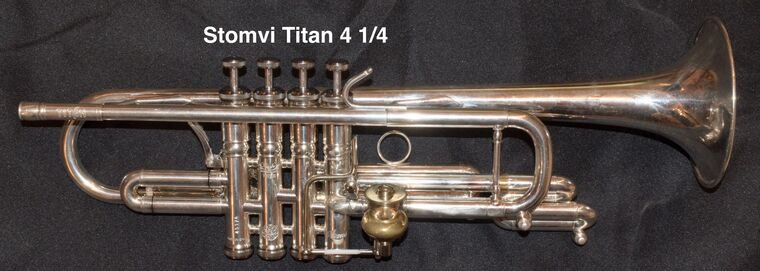@tmd Agreed!
You might find what Denis Wick said quite interesting
First of all, the teacher does what he does; he then tells the student what he thinks he does. The student then does what he thinks the teacher said.
Ivan started his musical career in Auckland, New Zealand, singing in a children's Choir doing weekly radio broadcasts and regular concerts. He was cornet soloist n the New Zealand National Youth Brass Band, and later principal trumpet in the National Youth Orchestra. He was a solo cornet in the World Champion National Band in 1970.
At Auckland University he studied composition and conducting. After his studies he was appointed principal trumpet of the Symphonia of Auckland. After leaving this orchestra he continued a free-lance playing career in New Zealand, Australia, Europe and USA. Always being a machinist and inventor in his free time, Ivan commenced the development of a player-friendly trumpet.
For over 20 years Ivan has been writing about issues specific to recreational trumpet players. In 2016 he and his wife formed a public charity promoting recreational music making and Ivan holds trumpet ensemble sessions in his studio.
@tmd Agreed!
You might find what Denis Wick said quite interesting
First of all, the teacher does what he does; he then tells the student what he thinks he does. The student then does what he thinks the teacher said.
People often ask "what is the difference between a trumpet and a cornet?" One major difference is the proportion of length before and after the valve section, i.e. where in the length of the instrument are the valves. Here is a graphic to illustrate this difference.

Excited to announce that Jaeger Brass and Trumpet4Fun are again open for business!
Hopefully we have dotted all the i’s and crossed all the t’s of the business regulations here in Germany. We have connected both our channels: the trumpet work of Jaeger Brass and the educational mission of Trumpet4Fun under the rubric of Dr.Trumpet 
The website www.DrTrumpet.de is live and has links to the two other sites. Already available for sale are Jaeger trumpets and mouthpieces (JaegerBrass) and books (Trumpet4Fun). Regretfully modifications and such have to wait a bit longer, whilst we are waiting for electricians (affected by Covid delays etc.) to wire up our machinery and lighting.
Please use email for sales enquiries until I can get a shopping cart functioning reliably.
The pedal tone is the note whose half wavelength resonates in the trumpet. It normally sounds more than an octave below low C due to the end effect of the bell because It is not always clear to the sound wave where the tubing ends. T mathematics of this are way beyond most of us - I defer to Benade.
On flugelhorn and trombone/Baritone Horn the pedal tone tends to be exactly one octave lower. On didgeridoo (a cylindrical wooden trumpet) the pedal tone is about a 12th lower.
Here is a bit more: https://www.jaegerbrass.com/Blo/Entries/2019/12/explaining-brass-instruments---2-the-notes.html
A recent note from a concerned parent:
Please forgive my naive questions, what about xxxx for trumpets, I read people trying different xxxx for their trumpets. You have any thoughts on this?
My reply:
Thank you for your question, better to have admitted naivety than have an empty checkbook! Yes there are many different options available for trumpets;, lead pipes, bells, special valves, water keys. These are normally offered as an option when new - like cars having automatic or manual gearboxes. But as in the car comparison, it is a very big deal to change an existing setup, it is not just the different component, it is how it fits and affects the whole instrument.
A lot of people think a lot of things about brass instruments; brainwashing and self-delusion is rampant! Think of these examples:
I want a stronger water key spring so I need one with more coils.
Wrong! A fewer number of coils make a spring stronger; a straight piece of wire (no coils) is stronger than one with one coil.
My trumpet has too much resistance, there must be a blockage.
Probably wrong. If the trumpet is hard to play there is likely some leakage exactly where the sound wave wants to have high pressure (pressure antinode). The pressure wants to escape, therefore the player has to work harder to maintain the resonance. In this case I would check for leaky water key or joints, or worn valves.
Remember; there is no computer model that will predict what will happen if you change xxxx.
Data is empirical = knowledge comes from experimentation.
“I think” does not equal “It is”.
As a player/instrument designer and builder/teacher/writer my specialty is to talk about these things, to bring peace to playing situations and to encourage a better relationship between player and instrument. This is best done in person and it is why we have such a comfortable setting here - my workshop/factory and the large music room. It is also why we started the not for profit foundation “The Recreational Musician” dba “Trumpet4Fun”.
Arm yourself with reputable equipment and concentrate on playing music.
I was there! It was a truly magnificent concert. Burghausen is 30 minutes up the road for me and there is a lot of jazz happening there, I play in their monthly Jam sessions. I also spent 3 days in a masterclass with Jon Faddis, a wonderful warm human being.
Check out this new $2.60 eBook (same price as a cup of coffee!)

for
Recreational trumpet players and their teachers
or
Band Directors without a brass background
or
Beginners and their parents
I have often been surprised at the lack of students' understanding of how trumpets work, so am fated to write some brief articles to help them. Here is the first effort:
http://www.jaegerbrass.com/Blo/Entries/2019/12/explaining-brass-instruments---1-the-basics.html
There is some confusing and incorrect information about various trumpet brands in this thread. BTW here are some photos on this page of an ascending valve trumpet I finished in my South Salem, NY workshop last week.
http://www.jaegerbrass.com/jaeger-ascending-c.html
You might like to check out my tube channel in which I post short animated talks; my opinions on musical issues that are not often discussed. https://www.youtube.com/channel/UCmrjZSItiMiFqwSLZsrdVlw
@ROWUK I am closer now....
@Trumpetsplus BTW to the OP, I once added a 5th valve to a brand new Stomvi Titan. It was one of my last jobs before leaving the US for Germany.
@ROWUK Most of my playing is on 4 valve trumpets. I use a quarter tone Bb for most of my jazz gigs, an ascending valve Bb for Concert Band and an ascending valve C for classical. I also have a double bell Bb which I almost never use (anyone want one?) and i have a prototype 4 valve (low F) Bb. When I need the extended low E on my C I have a third slide equipped with an 4th valve extension, rather like the Yamaha piccolo. BTW they all play great!
Given the apparent Nickel plated finish, the design of the water keys and the low serial number I might guess it was made in Soviet Russia. I have seen similar examples.
I have often said that valve problems are due to either Dirt, Damage, or Distortion. Your cleaning certainly resolves one of these possibilities. However I would hesitate to encourage or even strongly discourage people from willy nilly cleaning their valves in an ultrasonic bath. Those ultrasonic waves can also pierce thin or compromised metal, and sometimes the thinnest gauge brass on a trumpet is the ports in the valve.
Caveat Emptor!
Bon Voyage! In the meantime I will cover you in Augsburg. VIEL SPASS! 
If the Czech Republic will allow dual citizenship, I would go for it.
I was there! It was a truly magnificent concert. Burghausen is 30 minutes up the road for me and there is a lot of jazz happening there, I play in their monthly Jam sessions. I also spent 3 days in a masterclass with Jon Faddis, a wonderful warm human being.